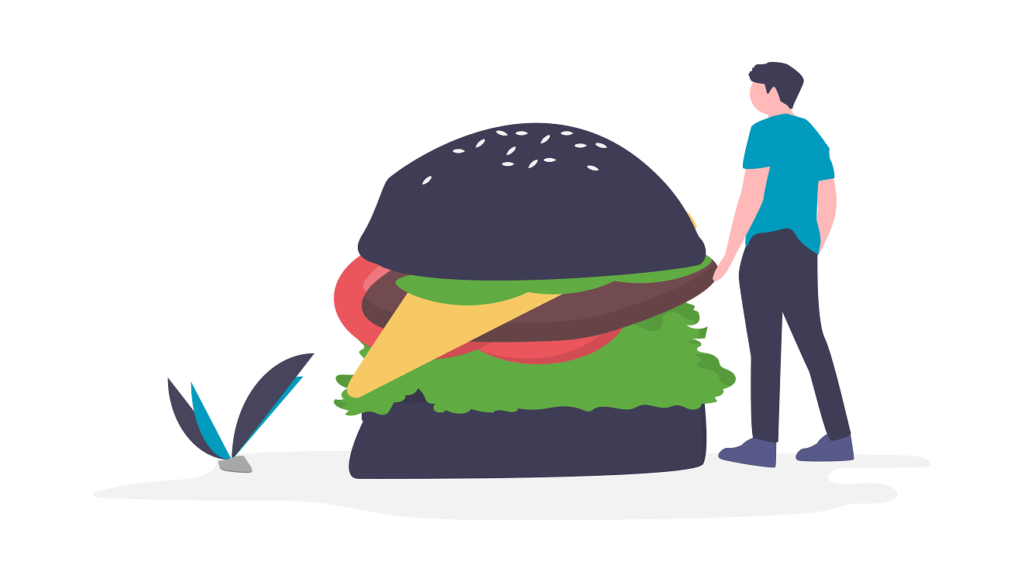Reading Practice: The Rise of Veganism

Here’s where you can download Reading Practice texts and professionally made worksheets designed to test and improve your reading skills – all available for only a few Academic Marks. Each authentic reading text has been carefully selected to best improve academic reading skills through repetition and success.
Before you begin reading...
-
video and audio texts
-
knowledge checks and quizzes
-
skills practices, tasks and assignments
Category: The Environment
Topic: The Rise of Veganism
Difficulty: Intermediate-Advanced
Length: 1,396 words
Description: A medium-length academic article about the popularity of veganism and its potential ability to save the world’s environment and ecology.

The Rise of Veganism
How Plant-Based Diets Impact the Environment
Increasingly popular since the turn of the 21st century in Europe and North America is the diet and philosophy of veganism. Being vegan means abstaining from eating all products which are not plant-based for moral, ethical and health reasons. While a pescatarian might allow themselves the odd plate of fish and seafood, a lacto-vegetarian a treat of dairy products such as yoghurt and cheese, and an ovo-vegetarian the occasional egg-based cake, vegans practise being 100% animal-product free – avoiding even honey and gelatine. Since the term ‘vegan’ was coined in 1944 by Donald Watson’s Vegan Society, veganism has continued to increase in popularity. Particularly since the late 2010s, this diet has now become so popular that at least some vegan options can be found in supermarkets and restaurants around the world. 1
The United Kingdom is somewhat of a pioneer in the modern vegan movement. While it is true that Buddhists across many countries have been practising meat-free diets for some time, no country in the world is as currently united in their disapproval for animal products as the UK. The Vegan Society, for example, claims that between 2016 and 2018, takeaway orders of vegan meals grew by 388% in this nation, with demand for meat-free food increasing by 987% in 2017 alone. Impressively, between 2014 and 2018, the number of vegans apparently quadrupled in the UK, reaching a total of 600,000 – or 1.16% of its total population. In fact, by 2025, it is predicted that 25% of the UK will be practising veganism or vegetarianism with another 25% being flexitarians, identifying as those who only eat meat occasionally. On a global scale, the Vegan Society even predicts with some confidence that less than 40% of the world will be consuming naturally reared meat by 2040, with 60% considering the practice immoral. 2
People are clearly moving away from the traditions of meat consumption around the world, but the question is why. Ask any vegan why they abstain from eating animal products and most will respond with concerns about the environment and the general state of the world’s ecology. Shockingly, the United Nations reports that over a million animal and plant species may be extinct within decades, with many vegans placing much of the blame for this on the agricultural system we have in place today.

One 2018 study conducted by Oxford University indeed concluded that the avoidance of meat and dairy would be the single biggest way for the general public to reduce their impact on this planet. This is because animal farming currently takes up around 83% of the world’s farmland, with cows alone consuming seven times as much food as humans and nine times as much water. Greenpeace even argues that agriculture alone accounts for 52% of global greenhouse-gas emissions, increasing concerns over global warming and ecological catastrophe. 3
Considering these rather worrisome statistics, the Vegan Society claims that going vegan will fix many of the world’s problems. However, research suggests that the situation may not be as black and white as it seems. On a positive note, activists for the improvement of the world’s environment are certainly on the increase, which is a step in the right direction. Eating a more nutritious diet could also save around eleven millions lives a year according to the New York Times, with meat-heavy countries such as Uzbekistan having rates ten times higher for diet-related deaths than countries such as Israel that traditionally follow a more balanced diet. Many extreme athletes such as ultrarunners are also promulgating a plant-based regimen, claiming that a diet of pulses, nuts and legumes provides the body with more energy, vitality and health than a burger or steak – which may be hard to disagree with. 4
What vegan activists may fail to take into account, however, is the complexity of the world’s environmental and ecological problems, ignoring the fact that seven billion people suddenly turning vegan may end up causing more problems than it cures. It is also quite likely impossible for the whole world to have the same kind of access to food variety as the United Kingdom currently enjoys. Even thirty years ago, the UK was unable to provide its citizens with the healthy and balanced vegan diet it offers today, with food now being imported into the British Isles from all around the world – with an increase in transportation time suggesting an increased carbon footprint. In truth, remote countries such as Uzbekistan may simply be unable to import the amount and variety of fresh produce that their people would need to maintain a healthy lifestyle, nor perhaps should they when considering its environmental impact. 5

Furthermore, Western demand for super-food products such as teff, avocado and quinoa has now pushed up the price of these commodities so much that the local people who have been consuming them for hundreds of years can now no longer afford to. Some vegan activists argue that growing produce very locally could be the answer, but this could of course be troublesome for any country that experiences harsh winters such as Canada or much of Northern Europe and Asia.
In addition to these concerns, there is also the task of convincing a large enough number of people to stop eating meat in order to reap the kinds of benefits that the WWF expect, who claim that greenhouse emissions would be reduced by 70% if everyone turned vegan. How do activisits, for example, convince Argentinians to stop consuming bife de chorizo (beef steak) or central Asians from drinking kumis (fermented mare’s milk) – dishes that have been with them since as long as their families can remember? And what do we do about the companies which have also caught on to the vegan trend and are now creating hundreds of new and expensive vegan products, all of which simply widen the choice available to consumers and are in direct competition with the existing animal-based products? 6
Many farmers with generations of experience working on the land argue that livestock is in fact necessary for the health of the soil, and that the effects of farming crops alone is seriously understated, with over ploughing severely affecting the health of arable land. The United Nations has in fact reported that twenty-five to forty billion tonnes of topsoil are lost to erosion every year around the world, with land becoming less and less fertile and more and more acidic due to over-farming. Some farmers even argue that leaving a field fallow and allowing livestock to graze there, using their dung and urine to accelerate soil restoration, is much healthier for the soil than the continual, year-round crop-based methods that modern pesticides and fertilisers allow. 7

Instead of convincing the whole world to go vegan and abandon their biological instincts and traditions, some researchers are claiming that a combination of two emerging technologies may in fact offer more sustainable and environmentally friendly options. The first technology is tower farming, which allows farmers to grow their produce vertically rather than horizontally, saving on space, soil and water, and allowing produce to be grown much closer to its consumers – therefore saving also on transportation and fossil-fuel based emissions.
The second piece of technology is known as ‘cultured’ or ‘lab-grown’ meat, which is, as it sounds, when meat is grown in a lab using the stem cells of existing animals. Such meat is free from any ethical concerns as the flesh is without a brain or nervous system and as such feels no pain. It is therefore suggested that a combination of these two technologies might be a better remedy for this global issue than convincing the world to turn vegan. 8
Clearly then, the relationship between veganism and the environment may not be as straightforward or simple as it may at first appear. With difficulties convincing meat-dependent nations to abstain and ancient cultures to abandon age-old traditions, and concerns over the health of the soil, the impact of increased importation and the effect super-food popularity is having on local populations, vegan activists might wish to think more carefully about the efficacy of their advice. What is undoubtable, however, is that today’s infinite-growth paradigm and dependence on mass consumption are certainly unsustainable, and that the maltreatment of animals for the benefit of profit is simply callous, cruel and unnecessary. At the very least, vegans are publicly trying to do something about these problems, forcing a very important debate into the public sphere. 9
Word count: 1,396
Downloads
This is where you can download the materials you’ll need to complete this reading task about ‘The Rise of Veganism‘.
Collect Academic Marks
-
100 Marks for joining
-
25 Marks for daily e-learning
-
100-200 for feedback/testimonials
-
100-500 for referring your colleages/friends